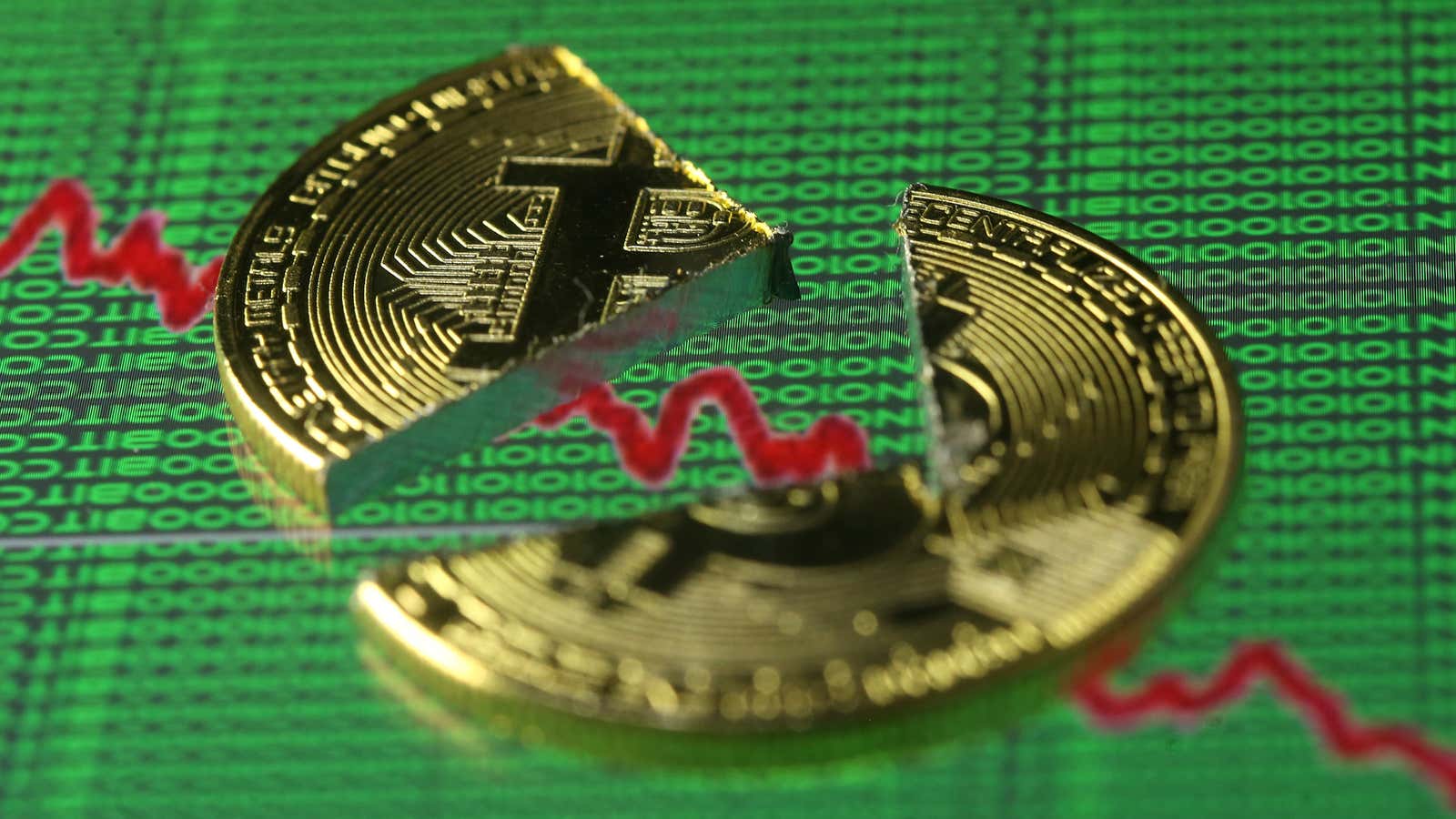The bear market for bitcoin and other virtual tokens has dragged down Coinbase, a digital-asset exchange and darling of the crypto-startup world. As prices plunge, the exchange’s download ranking has fallen to its lowest level among US finance apps since April last year. The drop reflects the fleeting fancy of retail traders that comprise most of the buying and selling in crypto markets.
In December, Coinbase soared to the top spot for US finance apps, in terms of downloads, as bitcoin rocketed to a record of more than $19,000, according to App Annie data. The original crypto asset has lost around two-thirds of its value since then. Likewise, Coinbase’s app fell to 40th in the June download rankings.
Of course, the app isn’t the only way customers access Coinbase—they can use its website. The company has also been building services that could be less linked to trading volumes, like Coinbase Asset Management and a custody division to securely store digital assets for hedge funds and family offices. The company said it already safeguards the equivalent of $20 billion for customers.
Despite the hype for anything to do with crypto and blockchain, trading platforms that provide a platform for speculation are just about the only profitable businesses to have emerged from the craze. Coinbase reportedly has a valuation of approximately $8 billion, up from $1.6 billion in 2017. The San Francisco-based company, which makes money by charging fees for transactions, generated more than $1 billion in revenue last year.
But crypto euphoria has dissipated. These days, central bankers are taking turns bashing bitcoin and its cousins: The Bank of Finland (pdf) says the concept of digital money is a fallacy, while the Bank for International Settlements (pdf) said cryptocurrencies suffer from many shortcomings and do not work as money. This year, you would be hard pressed to find a fiat currency that has performed worse than bitcoin. Concerns about market manipulation and money laundering have also grown.
Coinbase co-founder and CEO Brian Armstrong said on Twitter that the company isn’t worried about short-term prices and negative headlines, and that downturns help clear out the people who are in the market for the the wrong reasons. And while some exchanges have balked at closer scrutiny from regulators, sometimes fleeing to jurisdictions with less oversight, Coinbase positions itself as being closely aligned with government watchdogs.
The key question is whether bitcoin will ever be more than just a vehicle for speculation. Coinbase will be less dependent on trading by fickle retail investors if well-heeled institutional investors, like central banks and pensions, are one day comfortable buying, selling, and parking their money in digital tokens. That day hasn’t arrived yet.
